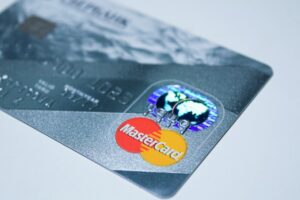In a surprising turn of events, the Subway sandwich chain has found itself under new ownership. Roark Capital, the holding company that already owns Dunkin’, has acquired this iconic fast-food brand. This strategic maneuver has sent ripples through the fast food industry, sparking discussions about the potential changes and benefits that this acquisition might bring. In this article, we’ll explore the details of this acquisition and what it means for both Subway and Dunkin’, two beloved brands with a global presence.
The Deal Unveiled: Subway Joins Roark Capital’s Portfolio
Roark Capital, a private equity firm with an extensive history of investments in the restaurant and foodservice sector, has added another prominent name to its collection. The acquisition of the Subway sandwich chain showcases Roark Capital’s determination to diversify and expand its influence within the industry. With Dunkin’ already in its portfolio, this acquisition further solidifies Roark Capital’s position as a major player in the fast-food market.
A Win-Win Situation: Potential Benefits for Subway and Dunkin’
The acquisition could potentially bring forth a range of benefits for both Subway and Dunkin’. Roark Capital’s experience in managing diverse restaurant brands could lead to synergies in terms of operational efficiencies, supply chain management, and marketing strategies. Additionally, Subway might gain access to new resources for innovation and expansion, rejuvenating the brand’s offerings and rekindling customer interest.
On the other hand, Dunkin’ could benefit from Subway’s global presence and customer base. Cross-promotions and collaborations between the two brands could lead to increased footfall and revenue, allowing Dunkin’ to tap into Subway’s loyal customer following.
Navigating Change: Potential Challenges and Adaptations
While acquisitions often promise growth, they also present challenges. Integrating two distinct brands requires careful planning to ensure a seamless transition. Maintaining each brand’s unique identity while benefiting from shared resources and strategies will be a delicate balance that Roark Capital needs to strike. Customer expectations, brand loyalty, and market positioning will all need to be considered as these brands move forward under new ownership.
The Competitive Landscape: Impact on the Fast Food Industry
The acquisition of Subway by Roark Capital sets the stage for potential shifts in the fast-food industry. As two major players join forces, other brands might feel the pressure to adapt and innovate to remain competitive. This move could potentially trigger a wave of acquisitions, partnerships, and strategic collaborations as companies seek to strengthen their positions in the evolving market.
Conclusion: A New Chapter for Subway and Dunkin’
Roark Capital’s acquisition of the Subway sandwich chain marks a pivotal moment in the fast food industry. With a diverse portfolio now including both Subway and Dunkin’, Roark Capital has positioned itself as a force to be reckoned with. While the road ahead may present challenges, the potential benefits for both brands are promising. As customers and industry observers, we can only wait and see how this acquisition shapes the future of Subway and Dunkin’ and influences the wider fast food landscape.












